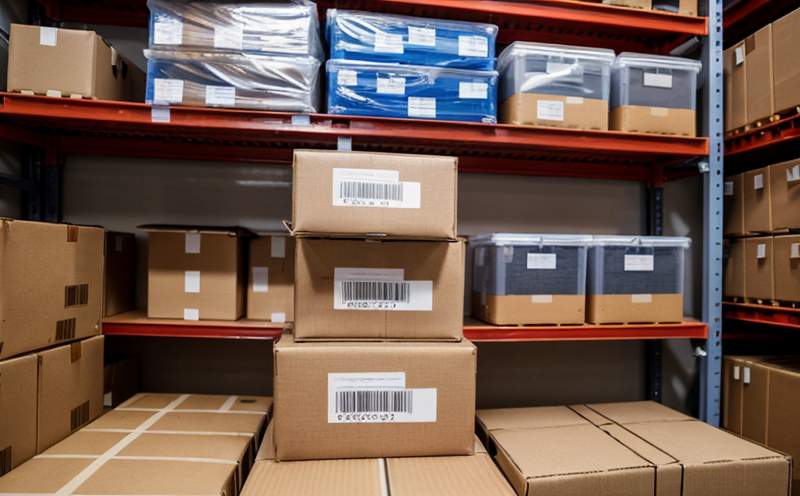ASTM D996 Terminology Documentation Testing for Packaging
The ASTM D996 standard is a crucial document in the packaging industry that defines and provides terminology used throughout the packaging sector. This service ensures comprehensive compliance with ASTM D996, which includes rigorous documentation testing of packaging materials to ensure they meet the defined standards for quality and performance. Compliance with this standard is essential for manufacturers, suppliers, and importers who operate within the government and trade facilitation sector.
Our specialized lab services focus on verifying that all packaging documentation aligns perfectly with ASTM D996 requirements. This involves meticulous examination of technical documents, product descriptions, and any other paperwork associated with packaging materials to ensure they meet the specified terminological criteria. The process ensures consistency across industries and facilitates smoother trade facilitation.
Compliance with ASTM D996 is vital for several reasons:
- To avoid legal challenges related to non-compliance
- To maintain high-quality standards in packaging documentation
- To ensure seamless international trade processes
- To uphold the integrity of supply chains and regulatory compliance
By leveraging our expertise, we help organizations navigate the complexities of ASTM D996 terminology. Our team works closely with your quality management teams to identify any discrepancies or areas for improvement in packaging documentation.
The testing process involves several detailed steps:
- Review Documentation: Thoroughly examining all relevant packaging documents.
- Identify Terminology: Pinpointing specific terms and definitions as per ASTM D996 standards.
- Validation: Ensuring that the documentation accurately reflects these terminologies.
- Reporting: Providing detailed reports on any areas that do not meet ASTM D996 requirements.
This service is particularly beneficial for organizations dealing with international trade, as it ensures their packaging documentation meets global standards. By adhering to ASTM D996, you enhance the reliability and trustworthiness of your products in the market.
| Application | Description |
|---|---|
| Supply Chain Management | Evaluating packaging documentation to ensure compliance across the supply chain. |
| Quality Control | Verifying that all internal and external packaging documents adhere strictly to ASTM D996 standards. |
| Trade Compliance | Avoiding discrepancies in international trade documentation for smoother processes. |
| Regulatory Reporting | Ensuring compliance with local and international regulatory bodies. |
The importance of ASTM D996 cannot be overstated, especially within the government and trade facilitation sector. It ensures that all stakeholders involved in packaging have a common understanding of terminology, thereby facilitating easier communication and reducing errors.
Industry Applications
- Supply Chain Management: Ensuring that all parties involved in the supply chain are using consistent terminology as per ASTM D996 standards.
- Quality Control: Providing detailed reports on any discrepancies found during the testing process to enhance internal quality management systems.
- Trade Compliance: Helping organizations avoid legal issues related to non-compliance with international trade documentation requirements.
- Regulatory Reporting: Ensuring that all packaging documentation is compliant with local and international regulatory standards.
| Application | Description |
|---|---|
| Supply Chain Management | Evaluating packaging documentation to ensure compliance across the supply chain. |
| Quality Control | Verifying that all internal and external packaging documents adhere strictly to ASTM D996 standards. |
| Trade Compliance | Avoiding discrepancies in international trade documentation for smoother processes. |
| Regulatory Reporting | Ensuring compliance with local and international regulatory bodies. |
The ASTM D996 terminology is widely accepted across various industries, making it a cornerstone in the packaging sector. By using this standard, organizations can streamline their operations and ensure that all parties involved are speaking the same language.
International Acceptance and Recognition
- Widely Accepted: ASTM D996 is recognized globally for its comprehensive approach to defining packaging terminology.
- Regulatory Compliance: Many regulatory bodies worldwide consider compliance with ASTM D996 as a requirement for import and export processes.
| Region | Recognition Level |
|---|---|
| United States | Highly recognized, with ASTM D996 being mandatory for many industries. |
| European Union | Compliance is often a prerequisite for exporting to EU countries. |
| Australia and New Zealand | Considered essential for ensuring product integrity in trade facilitation. |
| Japan | A key standard for packaging documentation in the Asia-Pacific region. |
The widespread acceptance of ASTM D996 ensures that your organization is meeting international standards, which can significantly enhance your reputation and market reach. By adhering to this standard, you are demonstrating a commitment to quality and compliance, which is highly valued by both domestic and foreign clients.
Environmental and Sustainability Contributions
The ASTM D996 terminology plays a crucial role in ensuring that packaging materials meet environmental standards. By adhering strictly to the defined terms, we can help organizations contribute positively to environmental sustainability efforts:
- Material Selection: Ensuring that all packaging materials are selected based on their compliance with ASTM D996.
- Eco-Friendly Practices: Promoting practices that minimize the environmental impact of packaging throughout its lifecycle.
- Sustainable Reporting: Providing detailed reports that highlight any areas where sustainability can be improved in accordance with ASTM D996.
Our services not only ensure compliance with ASTM D996 but also help organizations integrate sustainable practices into their packaging strategies. By doing so, we contribute to a more environmentally responsible industry.





